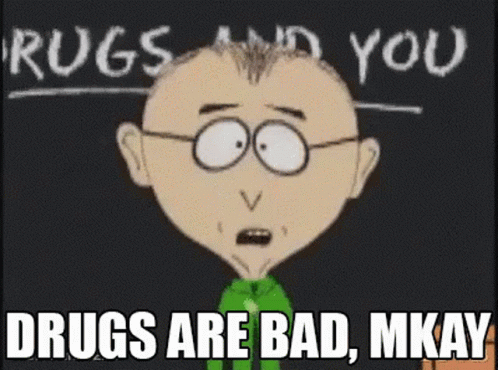MPorciusCatoCivver
Chief Windbag
- Joined
- Aug 14, 2023
- Messages
- 311
... Because what gives you pleasure is obviously not the same as that which does you good. Legalizing drugs is just a gateway to social escapism and ultimately collapse, kinda like saying there's no stigma at all to binge drinking and you can do it all the time just so you can die of liver failure when you're 24. It is ethically bad, it is immoral, and it is also bad for your health.

